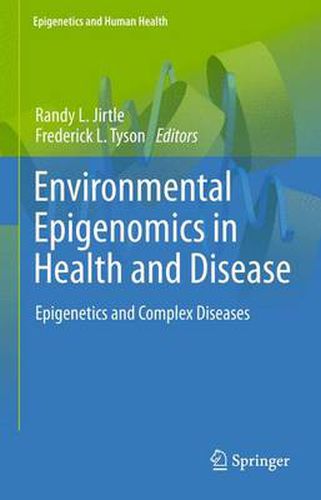Readings Newsletter
Become a Readings Member to make your shopping experience even easier.
Sign in or sign up for free!
You’re not far away from qualifying for FREE standard shipping within Australia
You’ve qualified for FREE standard shipping within Australia
The cart is loading…






This title is printed to order. This book may have been self-published. If so, we cannot guarantee the quality of the content. In the main most books will have gone through the editing process however some may not. We therefore suggest that you be aware of this before ordering this book. If in doubt check either the author or publisher’s details as we are unable to accept any returns unless they are faulty. Please contact us if you have any questions.
There are now compelling human epidemiological and animal experimental data that indicate the risk of developing adult-onset complex diseases and neurological disorders are influenced by persistent epigenetic adaptations in response to prenatal and early postnatal exposures to environmental factors. Epigenetics refers to heritable changes in gene function that occur without a change in the sequence of the DNA. The main components of the epigenetic code are DNA methylation, histone modifications, and non-coding RNAs. The epigenetic programs are established as stem cell differentiate during embryogenesis, and they are normally faithfully reproduced during mitosis. Moreover, they can also be maintained during meiosis, resulting in epigenetic transgenerational disease inheritance, and also potentially introducing phenotypic variation that is selected for in the evolution of new species. The objective of this two volume book is to provide evidence that environmental exposures during early development can alter the risk of developing medical conditions, such as asthma, autism, cancer, cardiovascular disease, diabetes, obesity, and schizophrenia later in life by modifying the epigenome. Consequently, epigenetic research promises to markedly improve our ability to diagnosis, prevent, and treat the pathological conditions of humans; however, it also introduces unique legal and ethical issues. This volume highlights the correlation between environmental factors and complex diseases, such as autism, addiction, neurological diseases, diabetes, obesity and cancer. It concludes with a chapter on legal and ethical implications of epigenetics.
$9.00 standard shipping within Australia
FREE standard shipping within Australia for orders over $100.00
Express & International shipping calculated at checkout
This title is printed to order. This book may have been self-published. If so, we cannot guarantee the quality of the content. In the main most books will have gone through the editing process however some may not. We therefore suggest that you be aware of this before ordering this book. If in doubt check either the author or publisher’s details as we are unable to accept any returns unless they are faulty. Please contact us if you have any questions.
There are now compelling human epidemiological and animal experimental data that indicate the risk of developing adult-onset complex diseases and neurological disorders are influenced by persistent epigenetic adaptations in response to prenatal and early postnatal exposures to environmental factors. Epigenetics refers to heritable changes in gene function that occur without a change in the sequence of the DNA. The main components of the epigenetic code are DNA methylation, histone modifications, and non-coding RNAs. The epigenetic programs are established as stem cell differentiate during embryogenesis, and they are normally faithfully reproduced during mitosis. Moreover, they can also be maintained during meiosis, resulting in epigenetic transgenerational disease inheritance, and also potentially introducing phenotypic variation that is selected for in the evolution of new species. The objective of this two volume book is to provide evidence that environmental exposures during early development can alter the risk of developing medical conditions, such as asthma, autism, cancer, cardiovascular disease, diabetes, obesity, and schizophrenia later in life by modifying the epigenome. Consequently, epigenetic research promises to markedly improve our ability to diagnosis, prevent, and treat the pathological conditions of humans; however, it also introduces unique legal and ethical issues. This volume highlights the correlation between environmental factors and complex diseases, such as autism, addiction, neurological diseases, diabetes, obesity and cancer. It concludes with a chapter on legal and ethical implications of epigenetics.